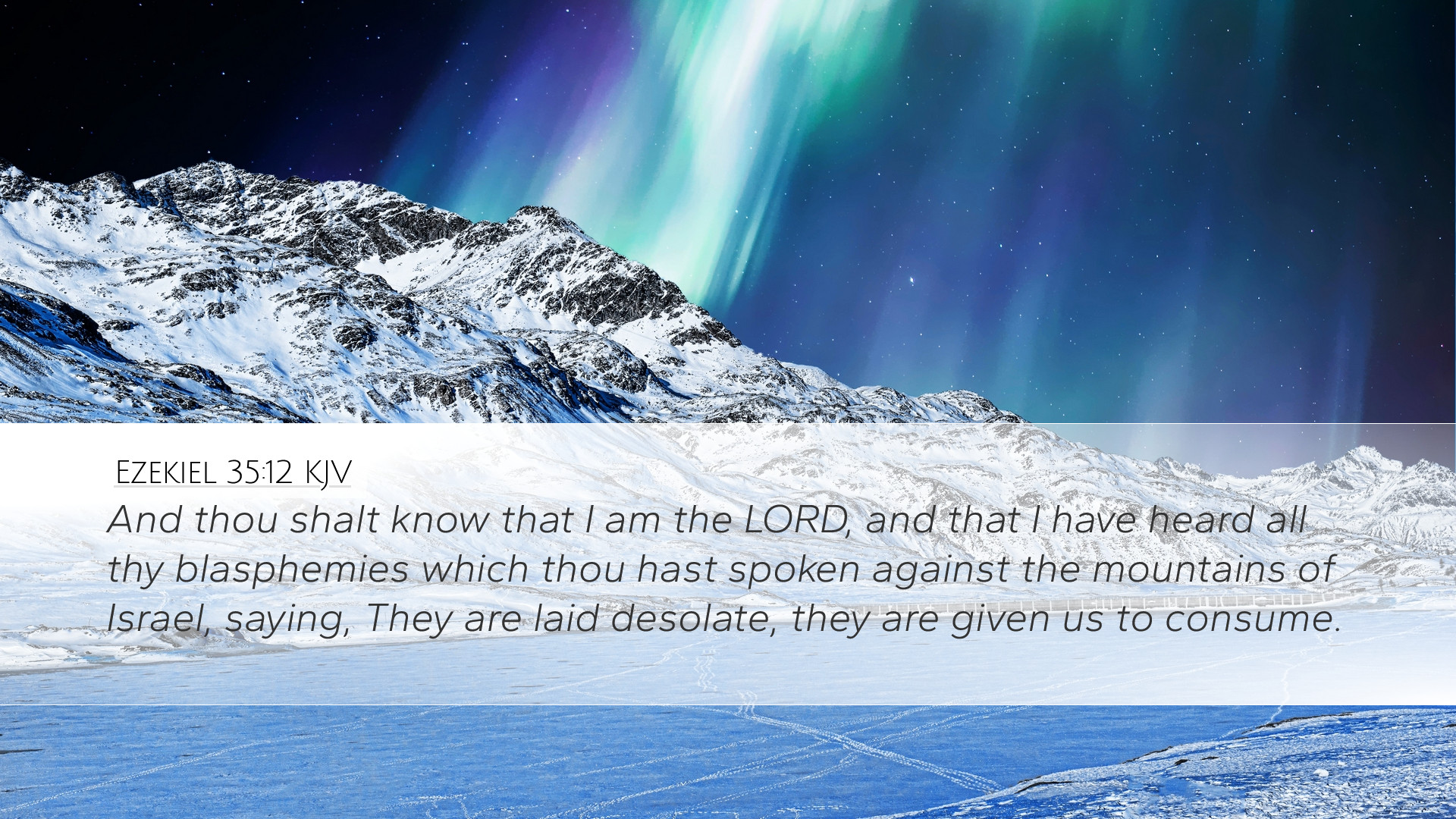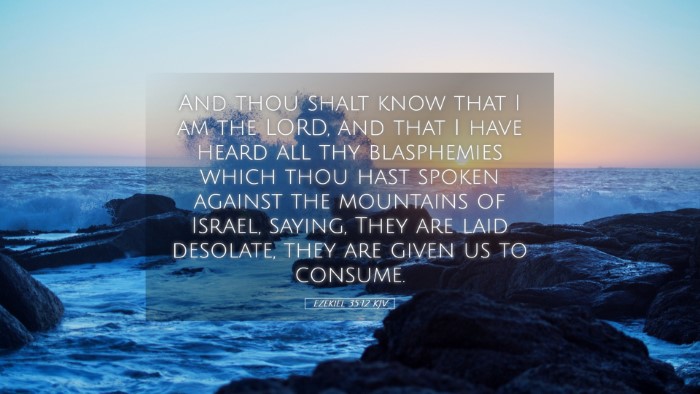Ezekiel 35:12 - Commentary Summary
Bible Verse: "And thou shalt know that I am the Lord, and that I have heard all thy blasphemies which thou hast spoken against the mountains of Israel, saying, They are laid desolate; they are given us to consume."
Context and Background
The prophecy contained in Ezekiel 35 addresses the Edomites, descendants of Esau, who harbored resentment towards Israel. Their actions against God's people provoke divine retribution, demonstrating God's sovereignty and His concern for the land that He promised to Israel.
Commentary Insights
Understanding God’s Judgment
Matthew Henry emphasizes that the acknowledgment of God’s sovereignty is central in this verse. The phrase "thou shalt know that I am the Lord" signifies a revelation of God’s authority and power. Henry posits that the certainty of God’s knowledge regarding the blasphemies spoken against His people serves as a warning against arrogance and unwarranted contempt for divine plans.
The Weight of Blasphemy
Albert Barnes provides insights into the nature of the blasphemies directed at Israel. He explains that speaking against the "mountains of Israel" can be seen as an assault not just on geographical features, but on the very promises and purposes of God. Such utterances reflect a larger theological stance—one that dismisses God’s covenant faithfulness and the destiny He has secured for His people.
Divine Sovereignty Over National Affairs
Adam Clarke further illuminates the context of divine sovereignty. He notes that the text serves to highlight how God preserves His people in the midst of surrounding nations’ hostility. Clarke argues that God's determination to hold nations accountable for their actions against Israel demonstrates a wider principle about the protection of the faithful and God's ultimate control over historical events.
Theological Implications
The Greatness of God's Involvement
Throughout this chapter, we see a clear affirmation that God is not passive. The assertion that "I have heard all thy blasphemies" implies a deeply relational aspect of God’s governance over human affairs, which calls for a recognition of His presence in the lives of His chosen people. God’s attentiveness shapes the biblical understanding of justice and mercy.
Reassurance for God's People
This verse serves as a reassurance for believers. Matthew Henry notes that it underscores the idea that God is attentive to the verbal and spiritual assaults directed at His people. The promise of vindication for those wronged speaks to a larger scriptural theme of God as a refuge and defender.
Practical Applications
- Encouragement in Persecution: Pastors can use this verse to encourage congregations facing adversity, reminding them of God's omniscience and His active role in their lives.
- Blasphemy Awareness: Students of theology should reflect on the warnings about speaking against God’s purposes, understanding the serious implications of such actions.
- Faith in God's Justice: For theologians, this passage encapsulates a critical theological principle: trust in God's ultimate justice. It invites deeper exploration into the concept of divine retribution.
Conclusion
The message of Ezekiel 35:12 serves as a powerful reminder of God's sovereignty, His attentive care for His people, and the serious nature of blasphemy against Him. As believers reflect on this passage, they are called to recognize both the gravity of their words and the unwavering nature of God's promises. Through these insights drawn from renowned commentaries, we can deepen our understanding of the profound nature of God’s relationship with His people and His justice in the world.


